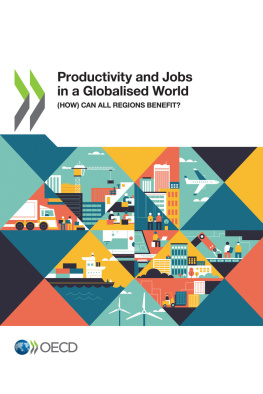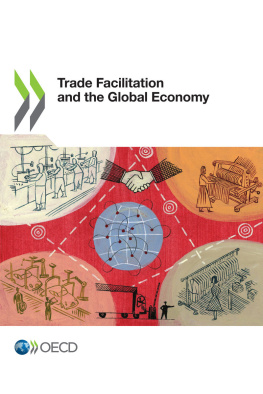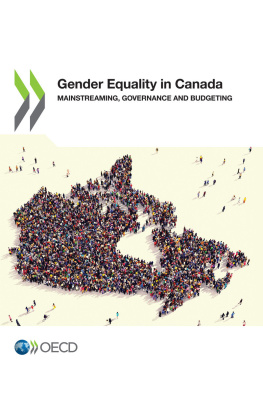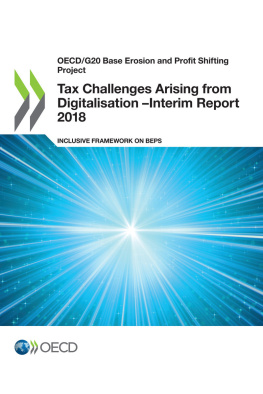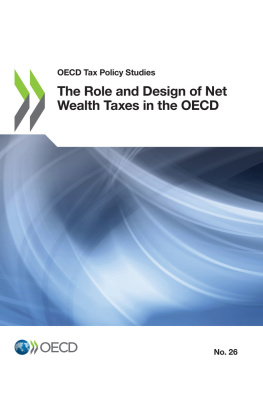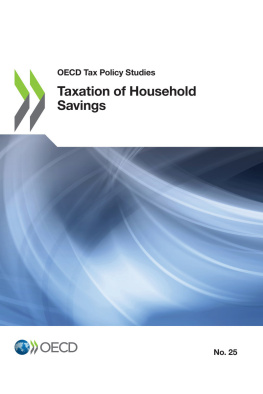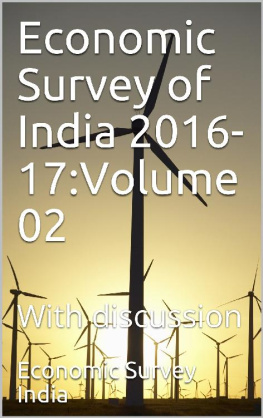coll. - Debate the issues : new approaches to economic challenges
Here you can read online coll. - Debate the issues : new approaches to economic challenges full text of the book (entire story) in english for free. Download pdf and epub, get meaning, cover and reviews about this ebook. City: Array, year: 2016, publisher: OECD, genre: Politics. Description of the work, (preface) as well as reviews are available. Best literature library LitArk.com created for fans of good reading and offers a wide selection of genres:
Romance novel
Science fiction
Adventure
Detective
Science
History
Home and family
Prose
Art
Politics
Computer
Non-fiction
Religion
Business
Children
Humor
Choose a favorite category and find really read worthwhile books. Enjoy immersion in the world of imagination, feel the emotions of the characters or learn something new for yourself, make an fascinating discovery.

Debate the issues : new approaches to economic challenges: summary, description and annotation
We offer to read an annotation, description, summary or preface (depends on what the author of the book "Debate the issues : new approaches to economic challenges" wrote himself). If you haven't found the necessary information about the book — write in the comments, we will try to find it.
Debate the issues : new approaches to economic challenges — read online for free the complete book (whole text) full work
Below is the text of the book, divided by pages. System saving the place of the last page read, allows you to conveniently read the book "Debate the issues : new approaches to economic challenges" online for free, without having to search again every time where you left off. Put a bookmark, and you can go to the page where you finished reading at any time.
Font size:
Interval:
Bookmark:
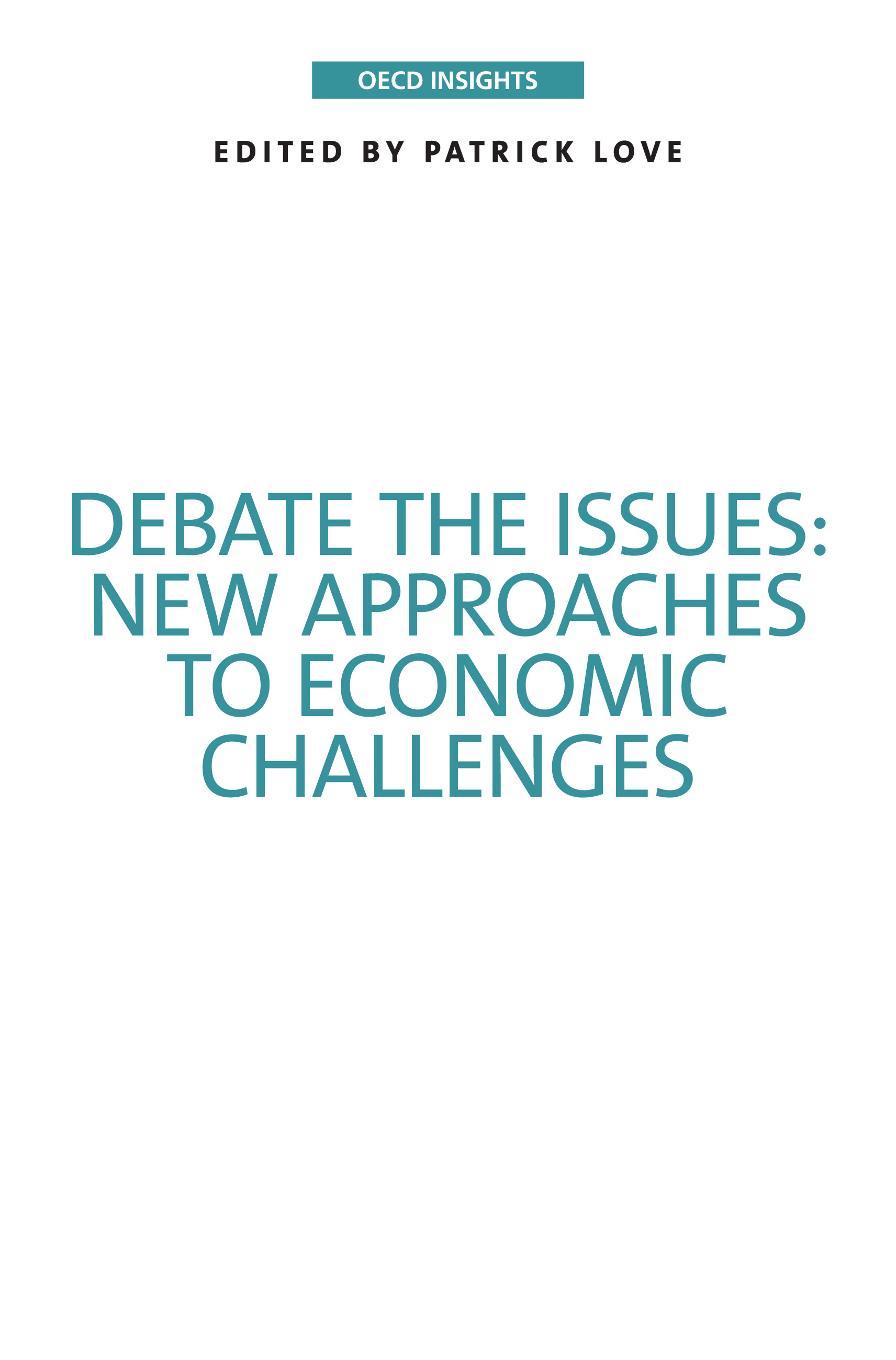
Flicitations et merci davoir tlcharg lun de nos tout nouveaux ePub en version bta.
Nous exprimentons ce nouveau format pour nos publications. En effet, mme si lePub est formidable pour des livres composs de texte linaire, le lecteur peut tre confront quelques dysfonctionnements avec les publications comportant des tableaux et des graphiques tout dpend du type de support de lecture que vous utilisez.
Afin de profiter dune exprience de lecture optimale, nous vous recommandons :
- Dutiliser la dernire version du systme dexploitation de votre support de lecture.
- De lire en orientation portrait.
- De rduire la taille de caractres si les tableaux en grand format sont difficiles lire.
Comme ce format est encore en version bta, nous aimerions recevoir vos impressions et remarques sur votre exprience de lecture, bonne ou autre, pour que nous puissions lamliorer lavenir. Dans votre message, merci de bien vouloir nous indiquer prcisment quel appareil et quel systme dexploitation vous avez utilis ainsi que le titre de la publication concerne. Vous pouvez adresser vos remarques ladresse suivante :
Merci !
Congratulations and thank-you for downloading one of our brand-new ePub-in-beta editions.
We're experimenting with this new format and, while ePub is fantastic for books with linear text, for books with charts, tables and graphs weve found some things may not work perfectly it depends on the device youre using.
So, for an optimal reading experience, we recommend:
- Using the latest version of your devices operating system.
- Reading in portrait mode.
- If large tables are tricky to read, try reducing the text size.
As this is an ePub-in-beta edition, we would be glad to receive feedback on your reading experience, good or otherwise, so we can improve for the future. When writing, please let us know which device/operating system you were using and the title of the publication. Write to:
Thank you!
OECD (2016), Debate the Issues: New Approaches to Economic Challenges, OECD Insights, OECD Publishing, Paris, http://dx.doi.org/10.1787/9789264264687-en.

The year 2015 was a landmark year for international co-operation, with a transformative agreement on a set of universal Sustainable Development Goals (SDGs) in New York and the Paris Agreement at COP21 marking a decisive turning point in our response to climate change. Both agreements make a strong call for a more sustainable development path, a new growth model that benefits all people and that takes care of the environment.
In the midst of these hopeful developments, however, the world economy shows little sign of making a full recovery from the crisis. In addition, geopolitical uncertainty is rising witness the refugee crisis in Europe, the old and new points of conflict in the Middle East, and the terrorist threat that has manifested itself so tragically in Paris, Brussels and elsewhere.
This generalised turbulence makes it very hard for our economies, our governments and our societies to chart the way for a sustained recovery from the legacies of the crisis.
So we have a lot to do. We need to capitalise on the new international resolve epitomised by the agreement on the SDGs and make a renewed effort to promote new policy thinking and new approaches to face the great challenges ahead of us. Responding to new challenges means we have to adopt more ambitious frameworks, design more effective tools, and propose more precise policies that will take account of the complex and multidimensional nature of the challenges.
The goal is to develop a better sense of how economies really work and to articulate strategies which reflect this understanding. A fundamental reflection is required on the changing nature of the economy which conventional analyses struggle to explain.
This is why we launched the New Approaches to Economic Challenges (NAEC) exercise. With NAEC, we are asking hard questions and challenging our assumptions and our understanding about the workings of the economy. We are transforming our ways of thinking and acting with respect to the economy, the environment and society as a whole system. NAEC is having an impact on OECD analytical work, data collection, and policy advice. It has strengthened integrated analysis and led to the adoption of new policy tools and approaches. We are doing better at using smart data and behavioural insights. We are also progressing in our understanding of complexity and systems thinking.
One of the main outcomes of the NAEC initiative, capitalising on OECD work on social issues and quality of life, has been to place inclusive growth at the heart of our analysis. Well-being, inclusiveness and sustainability are influencing economic surveys and other core work.
Slowing productivity, together with rising inequality, remains among the most important issues facing our societies. But we must understand that higher productivity is only a necessary, and not a sufficient, condition for raising living standards. That productivity must be inclusive. This new approach to productivity, as with all new approaches, is not easy to design. We are deliberately challenging entrenched thinking, experimenting with new ideas. And we wont always get it right first time around.
This book summarises opinions from inside and outside the Organisation on how the NAEC initiative can contribute to achieving the SDGs, and describes how the OECD is placing its statistical, monitoring and sector analytical capacities at the service of the international community. The authors also consider the transformation of the world economy that will be needed. This requires an understanding of the long-term tectonic shifts that are affecting people, the planet, global productivity, and institutions, because the interplay of these shifts can have profound consequences for the success of our efforts. Policy linkages, trade-offs and complementarities are being better appreciated so that economic, social and environmental challenges can be tackled in integrated and coherent ways to achieve multiple goals simultaneously.
Font size:
Interval:
Bookmark:
Similar books «Debate the issues : new approaches to economic challenges»
Look at similar books to Debate the issues : new approaches to economic challenges. We have selected literature similar in name and meaning in the hope of providing readers with more options to find new, interesting, not yet read works.
Discussion, reviews of the book Debate the issues : new approaches to economic challenges and just readers' own opinions. Leave your comments, write what you think about the work, its meaning or the main characters. Specify what exactly you liked and what you didn't like, and why you think so.








